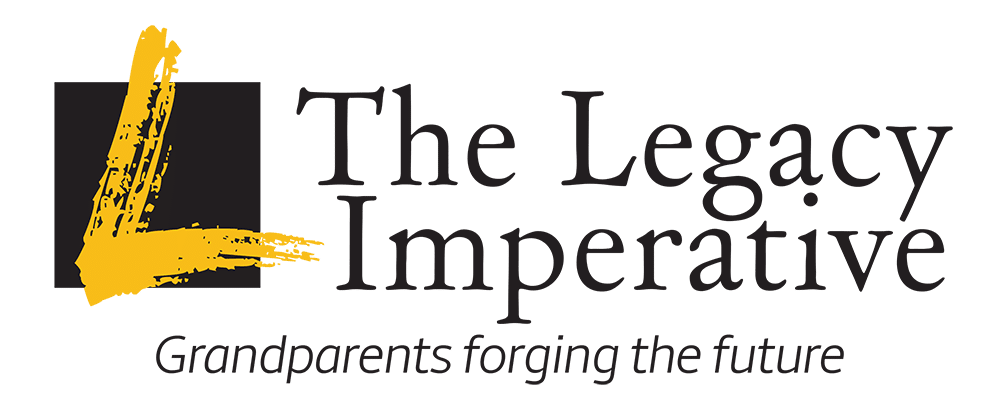The Alpha, the Omega and the In Between
Our pursuit of paradise now may rob the next generations of paradise later.
Note: We welcome some profound words from Eric Rieseberg, the author of Heroes Alongside Us, and an active friend of The Legacy Imperative. His response to a recent blog so captivated me, that I invited him to share them with you. I think that those who want to forge the future will be informed and inspired by what he has to say.
The Promise
In reading Dr. Bob’s recent blog “Caught Between Two Paradises,” I was fascinated by the title and underlying theme. It caused me to recall memories of my own life and the deep thoughts and introspection I had engaged in while chasing after personal happiness, success, and the pot of gold at the end of the rainbow—and how I would get to “heaven,” not only in this life but in the next.
I read articles and books on success and theology by such great thinkers as C.S. Lewis and Father Richard Rohr, a well-known Christian thought leader, in pursuit of achieving the bilateral goal of success now and “in the end.” You see…attaining success, wealth, that brand-new fancy car, and the big house…heaven on earth now…gains us entrance to the ultimate place that people of almost all faiths want to be: HEAVEN. Somehow, we believe that if we achieve those man-made tokens of success, the suitcase we fill with those trophies will position us closer than others to the promise—and we will be first in line.
The Dilemma
For an exceptionally long time I had wondered about “success;” what it really meant and how to “get” it. I grew up surrounded by “successful” people who seemed to be in paradise, but, in reality were “caught between two paradises.” Many were living in the “paradise” achieved and promised by mortal men; and then, if they were fortunate or blessed, they were recognized as something big. Yet, very big was always missing.
Regardless of each of our relative successes, how many of us have grappled daily with the task of “keeping the car between the white lines on the highway”—figuring, if we fail here, we will not gain entrance to the promised land? We have struggled to make the car payments on the newly-acquired luxury automobile that the marketers claimed would make us happy. How many of us have told ourselves that, if we just had a bigger house in that ritzy community down the road, our life would be better?
The imposed pressure and additional stress we have levied on ourselves by the constant messaging by teachers, journalists and politicians, who promise paradise on earth, has served to destroy many who listen and act on their advice.
From birth, we are barraged by materialistic messages that provoke expectations with us to be prettier, smarter, faster, and more powerful. This has been done so effectively that few of us question the validity of the message: “Reach the pot of gold faster than anyone else and reach it big! This will lead you to paradise!” Incidentally, this message comes from people who have little idea of what “heaven in between” is, or, more importantly, the Heaven promised in the Bible.
We spend a great deal of our life on earth looking for the pot of gold because we have been told “it is there” and “it is good.” There are a few problems with this premise: who is telling us this, how do they know that it is good, and how will we know it when we see it? Upon examination we discover that the emotional high from the new car smell fades quickly and the roof on the new house leaks. We are programmed and set up for chronic disappointment with each subsequent “new pot of gold.” It will never be enough.
If we are one of the many unfortunate not to recognize that the pursuit of these ultimately-impermanent icons is folly, we are consigned to constructing a weak foundation of happiness for ourselves and our legacy. Father Rohr suggests, “If you stay in the protected first half of life beyond its natural period, you will become a well- disguised narcissist or an adult infant (who is also a narcissist)—both of whom are also thought to be successful by main street culture. Sometimes referring to this as a patho-adolescent culture.”
The Answer
As older, wiser parents and grandparents, we must, in the time we have left, help our children and grandchildren navigate life’s road. Some of us have not found that the true heaven here on earth is right in front of us: seeing the happiness on our wife or partner’s face, watching our kids and grandkids grow up—even at times when growing up is done imperfectly. We must use our intellect and experiences, not to live our family’s life for them, but to equip them to live their own life by the values, beliefs, and teachings that we have found indomitable. We cannot successfully protect them from all harm nor assure them of a materialistically bountiful life. But we can provide for them a basis for understanding; keys to life; a legacy that will last for generations. That is the happiness and success for the “in between” in this life. The happy memories we make and hold will far outlive our materialistic accomplishments. How we lead this mortal life is important. It is our “warm up” for the Promise.
The Legacy Imperative of providing our children and grandchildren with the values to guide them through the “in between” is the most important gift we can provide for them in preparation for the paradise to come. Jesus has promised that, if we follow his Word from the Alpha and the Omega, he will provide for us the real “pot of gold at the end of the rainbow”. He spoke this promise through St. Paul in his second letter to young Timothy:
“But you, keep your head in all situations, endure hardships, do the work of an evangelist, discharge all the duties of your ministry. For I am already being poured out like a drink offering, and the time for my departure is near. I have fought the good fight. I have finished the race. I have kept the faith. Now there is in store for me the crown of righteousness, which the Lord, the righteous judge, will award to me on that day—and not only for me, but also to all who have longed for His appearing.”
Eric F. Rieseberg
Legacy Imperative

